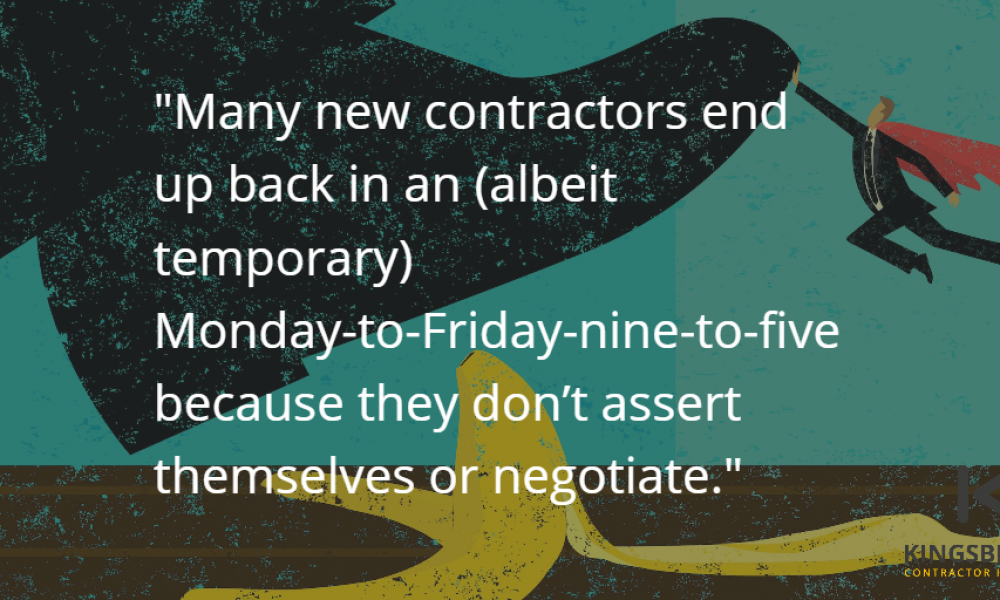How to avoid January self-assessment stress
January is well and truly upon us. Most of us have completed our first full week back in work and…
Becoming a contractor after being in permanent, full-time employment can be a daunting step to take, so the last thing…

Becoming a contractor after being in permanent, full-time employment can be a daunting step to take, so the last thing you want is someone telling you that you might be doing it wrong. But so many new contractors make the same initial mistakes as each other that you can learn and (hopefully) avoid making them yourself.
At Kingsbridge, we speak to contractors all the time so we’ve pulled together some of the top mistakes they wish they hadn’t made when they were new to the game.
Many new contractors don’t properly examine how much they need to be earning every month and just assume they’ll have enough money. Ideally you need to come up with two figures:
When calculating these amounts, remember to take into account the fact that you should be putting some of your money aside to cover your tax obligations when you do get paid.
Ideally, you want to be making a figure that ranges from somewhere between the two amounts to more than the second amount. But you also know that as long as you make at least the first amount, you’ll be OK financially.
Unless you’ve been made redundant, you’ll usually have a decent notice period of between one and three months when you leave your job. Use this time to network and apply for contract positions so that you have your first client lined up on your last day at work. Even if the role doesn’t start immediately, at least you’ll know that you have work due to start.
Take a look at our article on finding work as a contractor for tips on how to get this all-important first client lined up.
Two of the main attractions of contracting are more money and more flexibility. But so many new contractors end up back in an (albeit temporary) Monday-to-Friday-nine-to-five because they don’t assert themselves or negotiate.
Ultimately, you are charging an hourly or daily rate so you can set when you work and when you don’t. Remember, you’re charging more money for less time than you were being paid in full-time employment, so you can afford to only work so many days a week, or take so many afternoons off.
Negotiate with your client and demonstrate that you can do the work they want you to in hours that suit both of you. This way you can maintain the flexibility that probably attracted you to take this route in the first place!
Another mistake you don’t want to make is not having the right contractor insurance.
Speak to the friendly team at Kingsbridge on 01242 808740 or take a look at our website and we can help make sure you’re covered. You can also get in touch over on Facebook, LinkedIn, and Twitter.